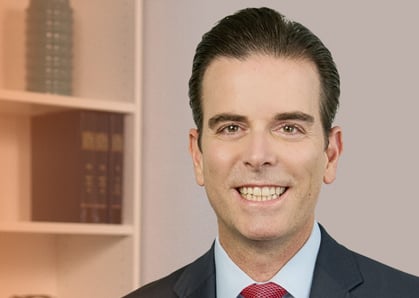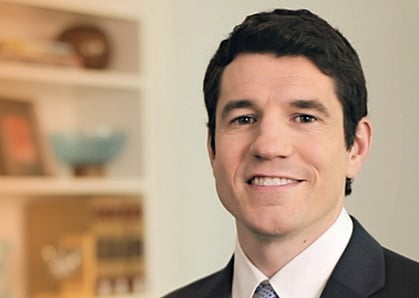Space Junk: What Goes Up, Must Come Down (Safely)
Here in South Florida, we are used to strange stories. One example from this year: a “Florida Man” made a claim against NASA because a battery pack from the International Space Station crashed into his house on March 8, 2024.1
To many, this story might seem like just another only-in-Florida, fleeting headline. Yet this anecdote actually touches upon broader, significant issues that could one day affect not only the space industry, but also the economy and security for the entire United States, and indeed the world.
The Dreaded Kessler Syndrome
Man-made objects falling from space back to Earth are obviously dangerous. Ironically, though, there can also be great danger when man-made objects in space do not return to Earth—or at least, do not return in a timely or orderly fashion
The “Kessler Syndrome” describes a scenario in which satellite collisions lead to a cascade of orbital debris blocking future satellites from safely achieving and operating in orbit.2 The more satellites in orbit—and especially defunct, uncontrolled satellites—the greater the chances of a frightening scenario like the Kessler Syndrome unfolding.
Lack of Governmental- and, Sometimes, Self- Regulation
Globally, there is a lack of regulations governing the deorbiting (and many other aspects) of satellites and the rockets that launch them. No treaties directly, comprehensively govern orbital debris. Likewise, some other countries with space programs have shown little interest to date in taking responsibility to address or mitigate this issue, let alone in regulating this issue.
Here in the United States, two national agencies—the Federal Aviation Authority and the Federal Communications Commission—have been moving more deeply into the field of regulating satellites and the rocket stages that propel them into orbit.3 For example, the FCC has a rule requiring operators to deorbit certain satellites within five years of the conclusions of their missions.
Similarly, the FAA is now starting to require reentry vehicles to obtain reentry licenses before the FAA will approve a launch.4 These licenses—at least three of which have been issued to date by the FAA’s Office of Commercial Space Transportation5 —are meant to prevent, or at least mitigate, the dangers of reentry.
Yet neither the FAA, nor the FCC, nor any other federal agency is expressly tasked with regulating orbital debris. Now that the Supreme Court has both overturned the longstanding case of Chevron6 and invoked the “major questions doctrine,”7 it is possible that federal regulation of satellites is more vulnerable than ever to legal challenges.
At the same time, some other countries with space programs have demonstrated what appears to be a pattern of not taking responsibility for these types of issues. Recently, a static-fired rocket accidentally left its pad and created a large explosion as it crashed to the ground near a populated area,8 and over the past few years, multiple uncontrolled rocket stages have repeatedly reentered the atmosphere without regard to where they would uncontrollably crash to the ground.9
These dangerous events—and even just the risk of such events—will likely increase the costs of launches going forward due to liability from damages and heightened insurance costs. Unless the underlying risks of uncontrolled reentries are reduced, whether through regulation or otherwise, then the associated liability and insurance expenses could put the brakes on the burgeoning space industry, which has been making progress toward reducing the costs of delivering satellites to orbit.
Where Do We Go From Here?
Once upon a time, the “space race” was all about launching satellites into space as quickly as possible. That version of the race continues, now between not only different nations but also different companies.
Yet another race will also define the success, and even viability, of humans in space: the race to effectively regulate “space junk” before it turns low Earth orbit into a treacherous space dump or reenters the Earth’s atmosphere crashing uncontrollably into a populated area.
[1] https://arstechnica.com/space/2024/06/family-whose-roof-was-damaged-by-space-debris-files-claims-against-nasa/
[2] https://www.space.com/kessler-syndrome-space-debris
[3] https://spacenews.com/faa-to-complete-orbital-debris-upper-stage-regulations-in-2025/
[4] https://www.govinfo.gov/content/pkg/FR-2024-04-17/pdf/2024-08156.pdf. The licenses are granted under 14 Code of Federal Regulations Part 450.
[5] https://techcrunch.com/2024/10/15/inversion-space-gets-reentry-license-for-demonstrator-cargo-delivery-capsule/. The companies are Varda Space Industries, SpaceX, and Inversion Space Company.
[6] The famous case of Chevron U.S.A., Inc. v. NRDC, 467 U.S. 837 (1984) gave federal agencies significant latitude in enforcing their statutes and regulations. In short, the courts would defer to an agency’s interpretation of an ambiguous law as long as that interpretation was reasonable (even if the courts might think another interpretation is better). But after the recent case of Loper Bright, courts now give the agencies’ interpretations no deference.
[7] This doctrine requires Congress to be explicit in granting agencies the power to regulate issues of major economic or political significance.
[8] https://spacenews.com/chinese-rocket-static-fire-test-results-in-unintended-launch-and-huge-explosion/
[9] https://www.nytimes.com/2022/11/04/science/china-rocket-debris.html

